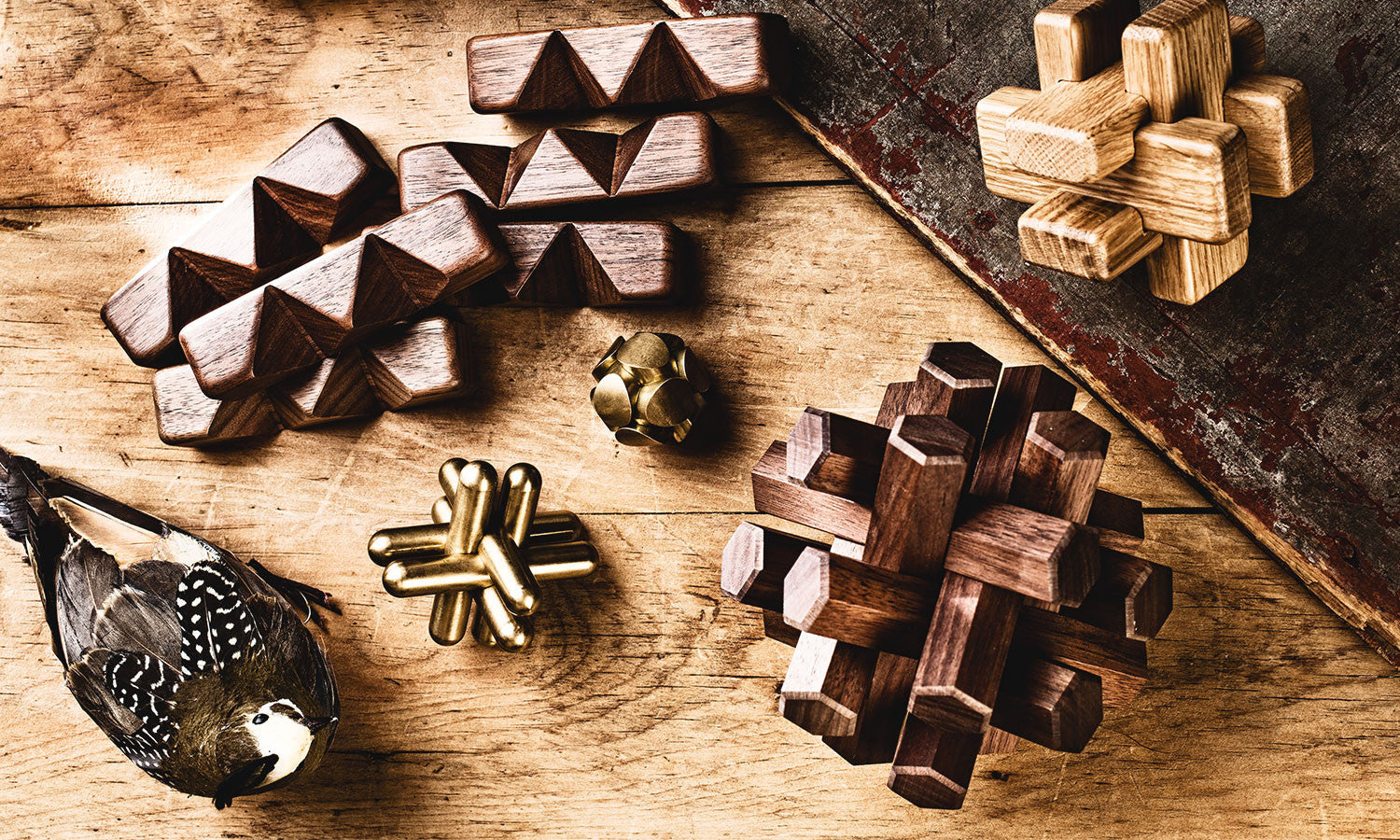The "Burr," "Knot" or "Chinese Cross" is one of the oldest and most popular mechanical puzzles in the world. The origin of the puzzle is unknown but the earliest known record is an engraving from 1698. The frontispiece of Chambers' Cyclopaedia depicts a complex scene full of scientific and artistic discovery.

The image hints at the vast array of knowledge contained within the two volumes of the encyclopedia and a wide variety of activities, tools, and scientific techniques are included in the illustration. However, if you look closely at the bottom of the engraving, you may notice a familiar shape...

A burr puzzle!

However, the puzzle was not likely invented in England and may already have been centuries old by the time it was illustrated by John Sturt in 1698. In fact, some historians suggest that this type of interlocking puzzle is derived from Chinese joinery, which was invented sometime around 4th century BC. There are certainly similarities between the components of the puzzle and the techniques used by ancient Chinese wood workers but the connection can not be found in print prior to the publication of Tang Yunzo's Compilation of Magic in 1889.

Regardless, this particular 6-piece puzzle design has inspired inventors and artists around the world for many generations. There have been big ones:

(Created by George Hart for MoMath.)
Small ones:

(Created by Allan Boardman, this puzzle is smaller than a pea.)
Even furniture:

(Designed and manufactured by Praktrik.)
The fundamental elements of the notched interlocking 6-piece puzzle can be extrapolated into more complicated 12, 24 even 36-piece puzzles.

The classic 6-piece interlocking puzzle has also been restyled into countless different shapes: stars, balls, barrels, jacks, pyramids and more. Do you have a favorite burr-style puzzle? Post an image or link in the comments section below.





Leave a comment
This site is protected by hCaptcha and the hCaptcha Privacy Policy and Terms of Service apply.